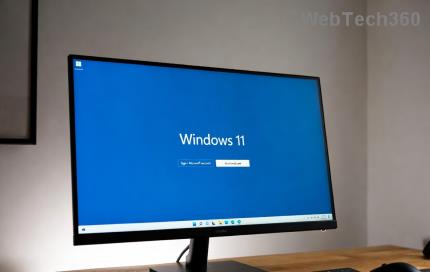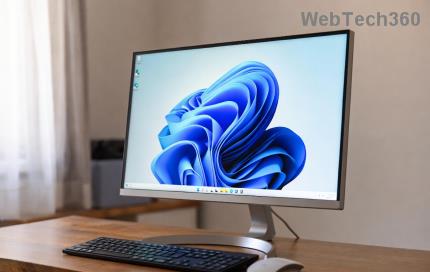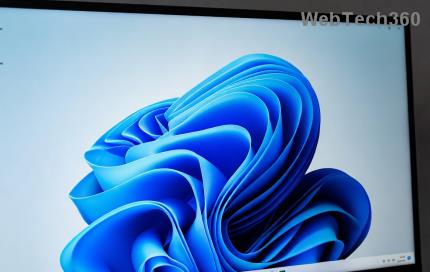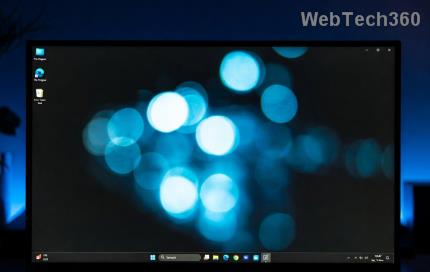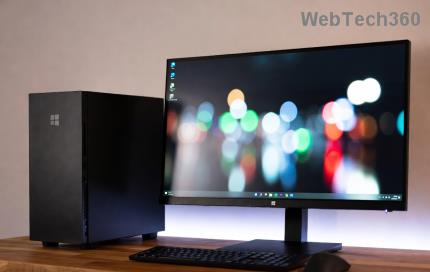Customize Default User Profile in Windows 7 – Part 1

In this series of articles we will introduce you to how to customize the default user profile in Windows 7.
When you create a new user account in Windows 11 , the operating system automatically creates a new User Profile folder in C:\Users\Username. However, this default User Profile folder name isn't always what you want.
By default, Windows uses the first five characters of your user account name as the profile folder name. If you don't like the User Profile folder name, you can change it by editing the registry. This article will show you how to change the User Profile folder name in Windows 11.
How to change User Profile folder name using Registry Editor
You can modify the registry entries associated with your user account to change the User Profile folder name in Windows 11.
This process involves modifying your registry entries, so we recommend creating a restore point . You can use the restore point to restore your PC if something goes wrong during the process.
To change the User Profile folder name:
1. Log out of your current user account and log in with the built-in or newly created admin account
2. Next, press Win + R to open the Run dialog box .
3. Type netplwiz and click OK to open the User Accounts dialog box .
4. Here, select your user account and click on Properties .
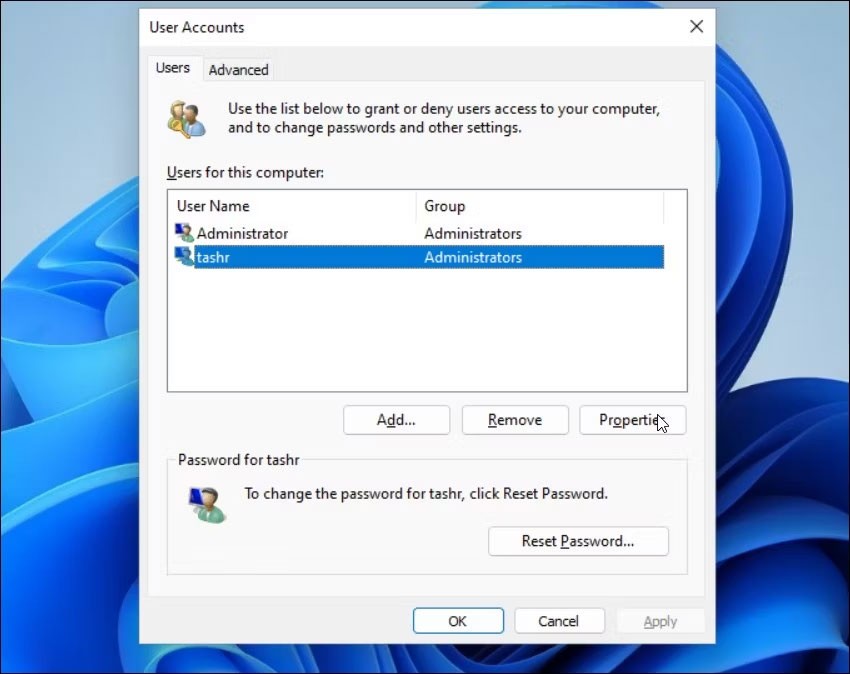
5. In the User Properties dialog box , you will see your User name and Full name .
6. Enter a name for your username, click OK > Apply .
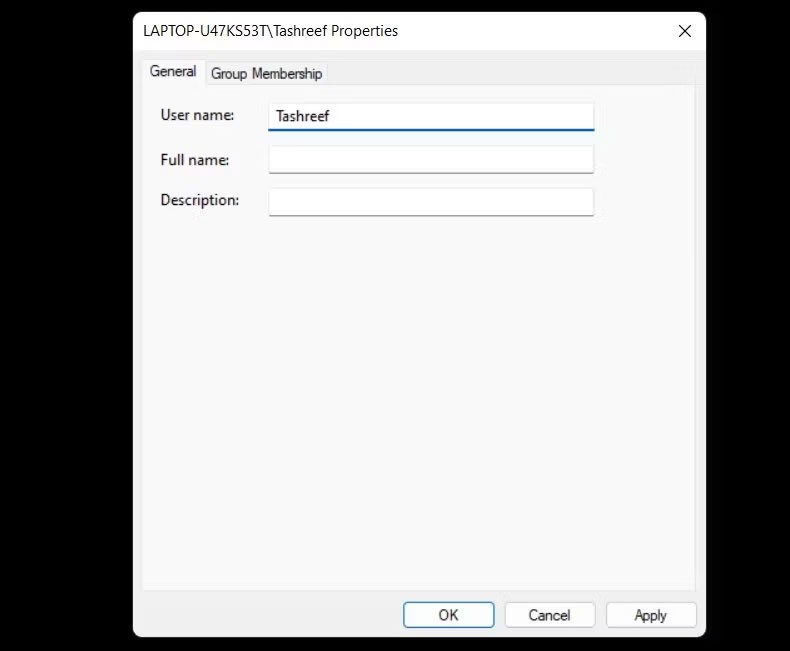
7. Close the User Account dialog box and perform a reboot.
8. Next, open Command Prompt . To do this, press Win + R , type cmd and click OK.
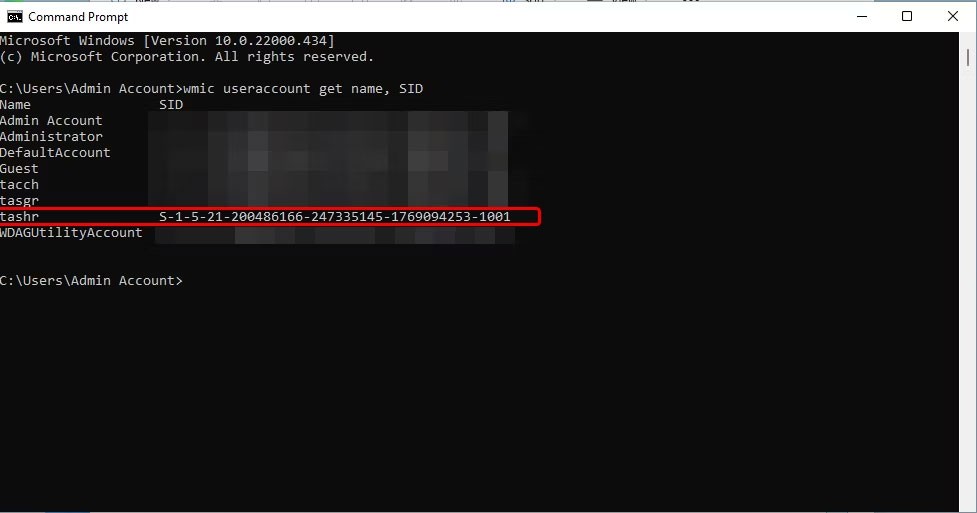
9. In the Command Prompt window, type the following command to view the SID (Security Identifier) for all user accounts:
wmic useraccount get name,SID10. Here, note the SID for the user account you want to rename the User Profile folder for. In this case, the SID for the username tashr is S-1-5-21-200486166-247335145-1769094253-1001.
Now that you have the SID, you need to enter it into the Registry Editor. To do that, follow these steps:
1. Press Win + R , type regedit and click OK to open Registry Editor .
2. In Registry Editor, navigate to the following location:
HKEY_LOCAL_MACHINE\SOFTWARE\Microsoft\Windows NT\CurrentVersion\ProfileList3. Inside the ProfileList key , locate and click the key name that matches the SID you noted earlier.
4. On the right, right-click the ProfileImagePath value and select Modify.
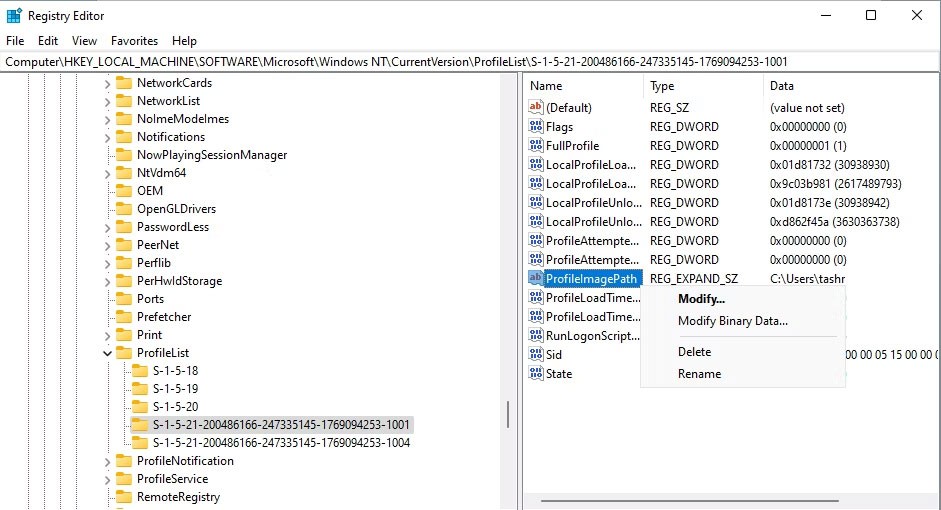
5. Enter the name you want for the profile folder and click OK .
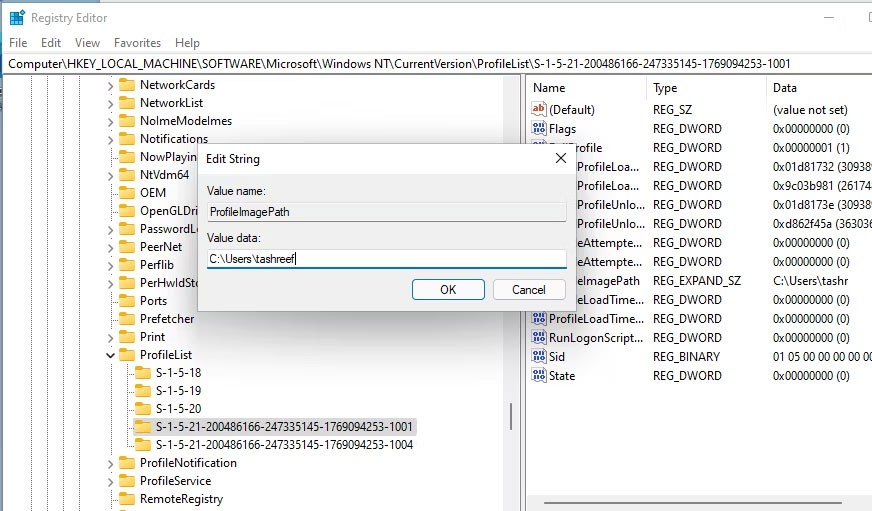
6. Close the Registry and Command Prompt windows if open.
7. Next, press Win + E to open File Explorer and navigate to C:\Users\ .
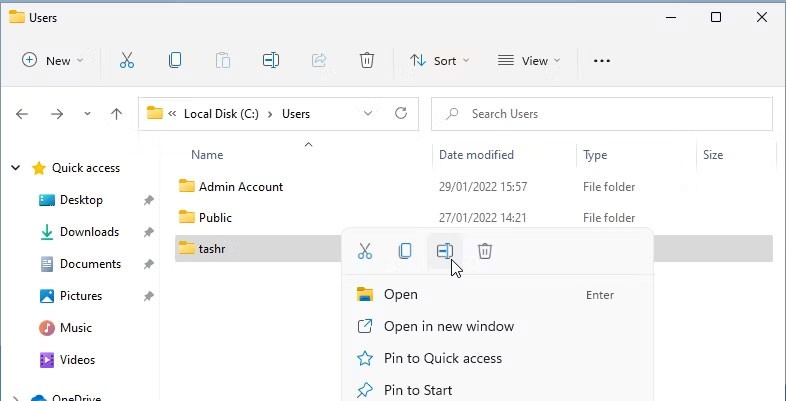
8. Select your User Profile and press F2 to rename it. Enter a new name for the User Profile (this name must match the user name entered in Registry Editor).
9. Click Continue to save changes.
Sometimes you may encounter the error " You can't perform this action " when renaming a folder. This error usually occurs if you switch to another admin account without logging out of the main user account. Alternatively, restart your PC and repeat the steps to rename the User Profile folder without errors.
Next, log out of your current account and log in to the user account with the new user folder name. Open File Explorer and navigate to C:\Users\ and you should be able to use the previous profile with the new path name.
Discover how to safely convert MBR to GPT without data loss in Windows 11. Follow our step-by-step guide using built-in tools and third-party software for a seamless upgrade to modern partitioning.
Struggling with the 0x80072ee7 Store connectivity error? Discover proven, step-by-step fixes to restore your Microsoft Store access quickly and easily. Say goodbye to frustrations!
Struggling with background change errors on Windows 11 Pro? This step-by-step guide helps gamers fix the issue fast, restoring your custom setups without hassle. Discover proven methods to personalize your desktop effortlessly.
Discover how to set up Windows 11 Dynamic Refresh Rate for buttery-smooth performance on compatible displays. Follow our step-by-step guide to optimize your PC
Struggling with slow browsers on Windows 11? Discover proven fixes for memory leaks in Chrome, Edge, Firefox, and more. Boost performance and end frustration today.
Struggling with the Windows 11 Photos App File System Error? Discover proven, step-by-step fixes to restore your photo viewing experience without hassle. Updated with the latest troubleshooting tips for seamless performance.
Struggling with OBS Studio black screen on Windows 11? Discover proven fixes for smooth streaming and recording. Step-by-step guide to resolve black screen issues quickly and easily.
Struggling with "GPT Partition Style Not Supported" error on your old PC? Discover proven solutions to convert partitions safely, upgrade your system, and get back to smooth computing without data loss. Perfect for legacy hardware users.
Struggling with stylus pen pressure sensitivity on Windows 11? Discover proven fixes to restore smooth, responsive drawing and note-taking. Step-by-step guide with tips for optimal performance.
Discover step-by-step how to use Windows 11 PowerShell as administrator. Learn to launch, run commands, and troubleshoot with elevated privileges for ultimate control. Perfect for beginners and pros alike.
Discover all essential methods to take a screenshot on Windows 11, from basic keyboard shortcuts to advanced tools. Get step-by-step guides, tips, and tricks to capture your screen perfectly every time.
Discover the ultimate guide to optimizing Java settings for Windows 11. Boost performance, reduce lag, and enhance your Java apps with these expert-recommended tweaks for maximum efficiency.
Discover a step-by-step guide on how to setup Windows 11 BitLocker on external USB drives. Protect your data with easy encryption tips, troubleshooting, and best practices for ultimate security.
Struggling with the Windows 11 "Clock Out of Sync" error? Discover proven, step-by-step fixes to resolve time synchronization issues, restore accuracy, and keep your PC running smoothly. No tech expertise needed!
Struggling with gaming lag on Windows 11 due to VBS and HVCI? This comprehensive guide explains what they are, why they cause stuttering, and step-by-step troubleshooting to boost your FPS without compromising security. Get back to seamless gaming today!
